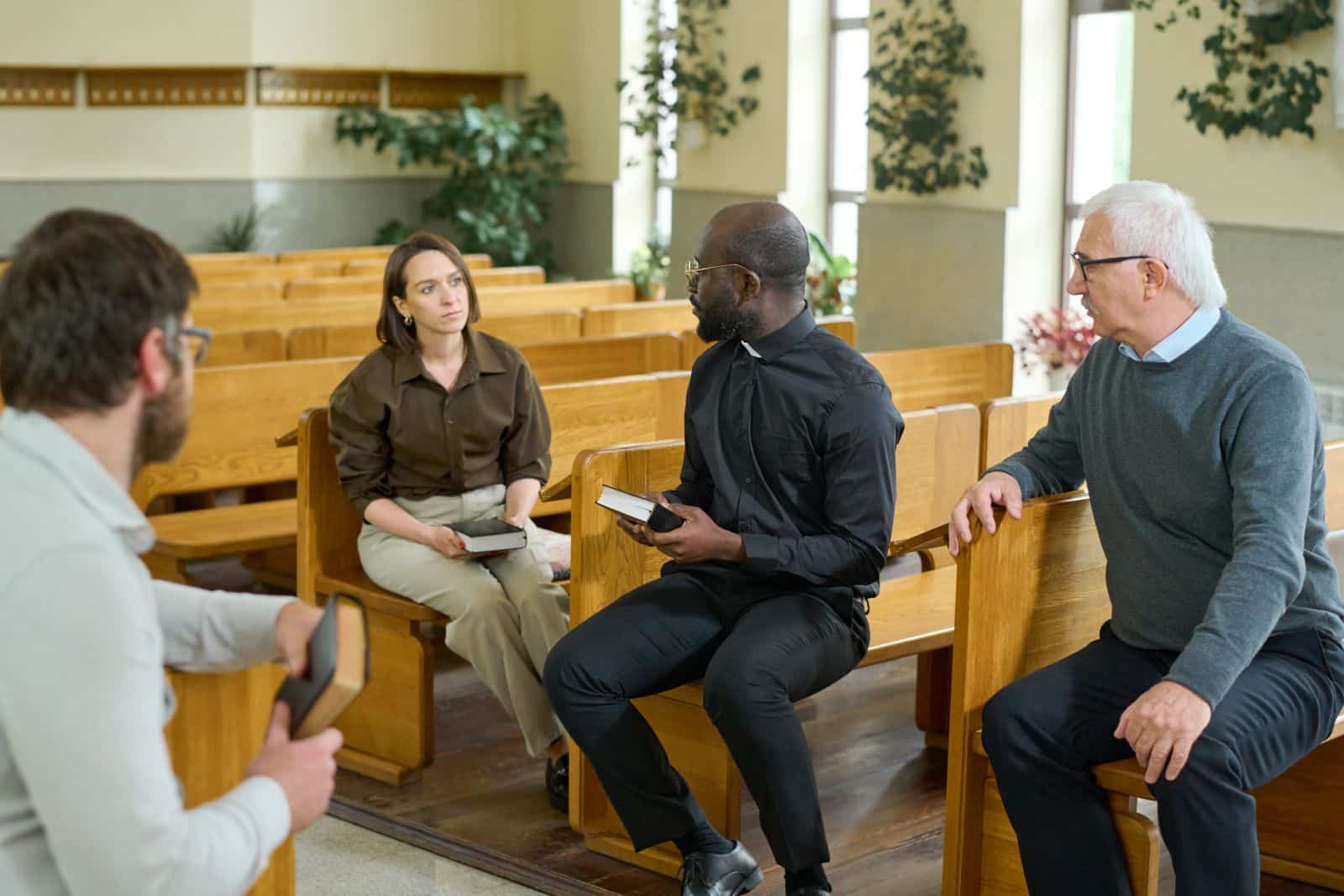We’ve all been there—falling for those classic misunderstandings, especially regarding matters of faith. Could these misconceptions be influencing your beliefs and practices?
1. All Sins Are Equal

Sure, all sins are bad news, but some come with a bigger price tag than others. Take 1 John 5:16-17, for example—it talks about a “sin that leads to death” and one that doesn’t, hinting at a difference.
2. Money Is The Root Of All Evil

The Bible actually says the love of money is the root of all evil (1 Timothy 6:10). Money itself can be used for good or bad depending on our intentions and how we manage it.
3. God Helps Those Who Help Themselves

This phrase isn’t found in the Bible. Proverbs 28:26 warns, “Those who trust in themselves are fools, but those who walk in wisdom are kept safe,” promoting reliance on God rather than self-reliance.
4. The Rapture Will Happen Soon

The timing of the Rapture is a subject of much debate and isn’t specifically dated in the scriptures. Matthew 24:36 states, “But about that day or hour no one knows, not even the angels in heaven, nor the Son, but only the Father.”
5. Christians Shouldn’t Judge Others

While we are warned against hypocritical judgment (Matthew 7:1-5), we are also called to discern right from wrong and hold each other accountable (John 7:24, Galatians 6:1).
6. Jesus Was a Pacifist

Jesus taught love and forgiveness but also showed righteous anger and took a stand against injustice. John 2:15-16 describes Him driving the money changers out of the temple, demonstrating that He wasn’t passive in the face of wrongdoing.
7. The Old Testament Laws Are Still Binding

Christians believe that Jesus fulfilled the Old Testament laws (Matthew 5:17). Understanding this helps differentiate between cultural practices and moral imperatives, guiding how we live our faith today.
8. Only Priests Can Interpret the Bible

The Protestant Reformation emphasized that everyone can and should read and interpret the Bible for themselves. 2 Timothy 3:16-17 states, “All Scripture is God-breathed and is useful for teaching, rebuking, correcting and training in righteousness.”
9. Faith Means Never Doubting

Doubt is a natural part of faith. Thomas doubted Jesus’ resurrection until he saw and touched Him (John 20:24-29), showing that questioning can lead to deeper faith.
10. God Wants Us To Be Happy

God’s primary concern is our holiness, not just our happiness. James 1:2-4 speaks about facing trials of many kinds to produce perseverance and maturity in faith.
11. Miracles Don’t Happen Anymore

Miracles can and do still happen. Hebrews 13:8 says, “Jesus Christ is the same yesterday and today and forever,” implying that His power to perform miracles continues.
12. Prayer Is About Getting What We Want

Prayer is more about aligning our will with God’s than getting our wishes granted. 1 John 5:14-15 teaches that if we ask anything according to His will, He hears us.
13. Christianity Is Against Science

Many Christians are scientists who see no conflict between their faith and their work. Genesis 1:1 states, “In the beginning God created the heavens and the earth,” indicating that exploring creation through science can complement faith.
14. Going To Church Is Optional

Fellowship with other believers is a crucial part of Christian life. Hebrews 10:24-25 encourages us not to give up meeting together, as it provides support, accountability, and communal worship.
15. The Bible Is Anti-Women

The Bible includes many examples of strong, influential women, such as Deborah (Judges 4-5) and Esther. It’s important to read it in the context of its time and culture, recognizing its progressive aspects for women.
16. We Must Earn God’s Love

God’s love is unconditional and not based on our deeds. Ephesians 2:8-9 clarifies that we are saved by grace through faith, not by works, so no one can boast.
17. Being a Good Person Is Enough

Christianity teaches that salvation is through faith in Jesus Christ, not just through good deeds. Ephesians 2:8-10 emphasizes that good works are a response to faith, not a substitute for it.
18. Hell Is a Myth

The Bible speaks clearly about hell. Jesus mentions it several times, such as in Matthew 25:46, which states, “Then they will go away to eternal punishment, but the righteous to eternal life.”
19. The Church Is Perfect

The church is made up of imperfect people. Recognizing its flaws helps us strive for improvement rather than disillusionment, as Paul discusses in 1 Corinthians 12:12-27, emphasizing unity and diversity within the body of Christ.
20. Christians Should Be Politically Neutral

While faith should influence our values and decisions, Christians can and should engage in political processes to promote justice and morality. Proverbs 31:8-9 encourages speaking up for those who cannot speak for themselves and defending the rights of the poor and needy.
21. Christianity Is a Western Religion

Christianity is a global faith with followers from every culture and nation. Revelation 7:9 describes a great multitude from every nation, tribe, people, and language standing before the throne, celebrating its universality.
Keeping the Faith Real

Misconceptions can cloud our understanding and practice of faith. By seeking truth and clarity, we can live out our beliefs more authentically and effectively.
Featured Image Credit: Shutterstock / Paul Shuang.
The images used are for illustrative purposes only and may not represent the actual people or places mentioned in the article.
For transparency, this content was partly developed with AI assistance and carefully curated by an experienced editor to be informative and ensure accuracy.

